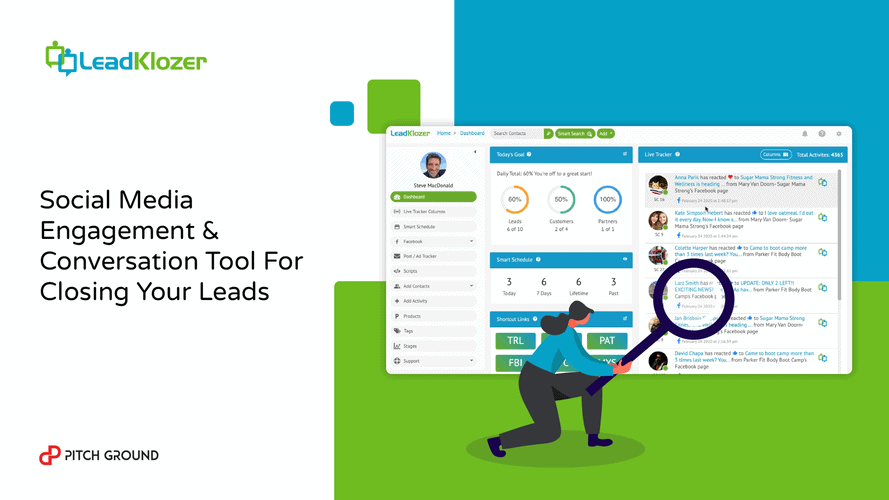While Social Media offers dozens of metrics to track virtually anything, it falls short in monitoring sales, conversions, and ROI—you know, the important stuff.
Why is Social Media so hard to measure (that’s there even a conspiracy theory about that)?
This was a great insight from Rand Fishkin, during a keynote at Inbound 2017.
He found a very fun pattern.
Take a look at the easiest-to-measure digital marketing channels:
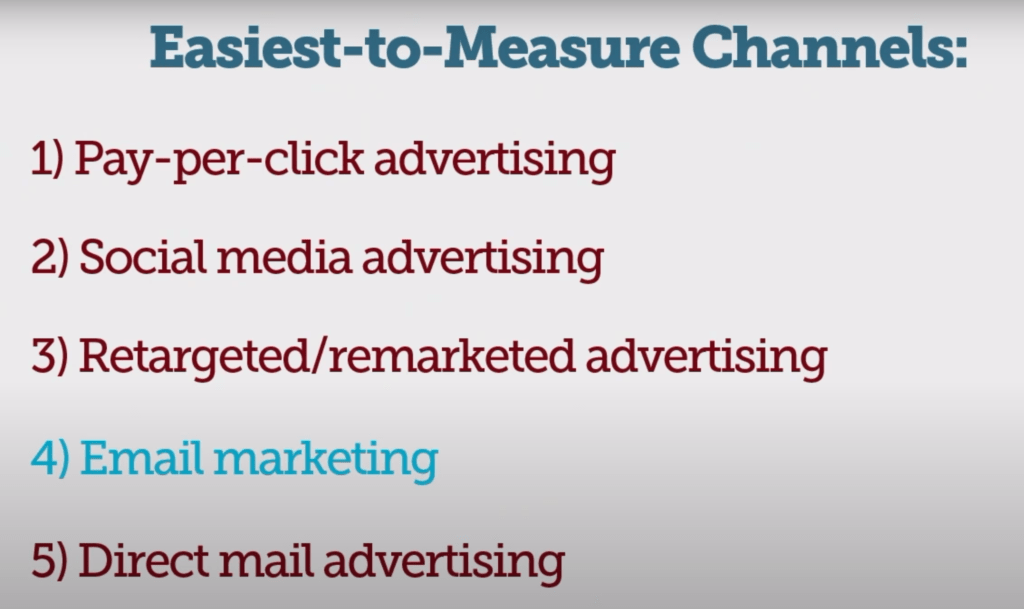
The channels in red are paid channels; those in blue are organic.
And take a look at the hardest ones to measure:
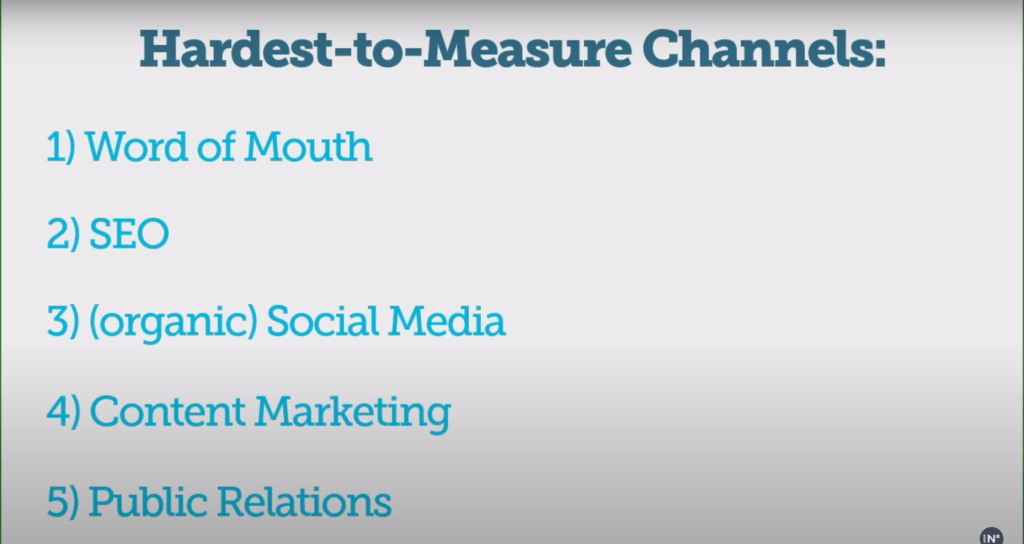
Do you notice a pattern?
For some reason, paid channels are more measurable. And marketing teams tend to allocate more their budget to the channels that are easier to measure.
What if these big corporations conspiracy to make it easier to track paid channels, so we allocate our money there?

Not likely. But, the easier you make a channel to measure, the more willing to invest in it. We’re eager to pay more to reduce uncertainty.
Why is Social Media so hard to measure?
One reason is that organic growth to be relevant requires you to promote content and conversations that engage with people.
Generally, there is an inverse correlation between commercial-oriented and engaging content.
Unless you have a product people love, the chances are that direct offers won’t encourage people to share, comment, or interact with you.
So, a challenge is to keep a balance between having conversations and promoting your product.
On the other hand, Facebook’s Algorithm, if not all social algorithms, will be more likely to boost your videos and images with high engagement rather than your product landing page.
Things get harder when overall organic efforts seem to be less effective over time.
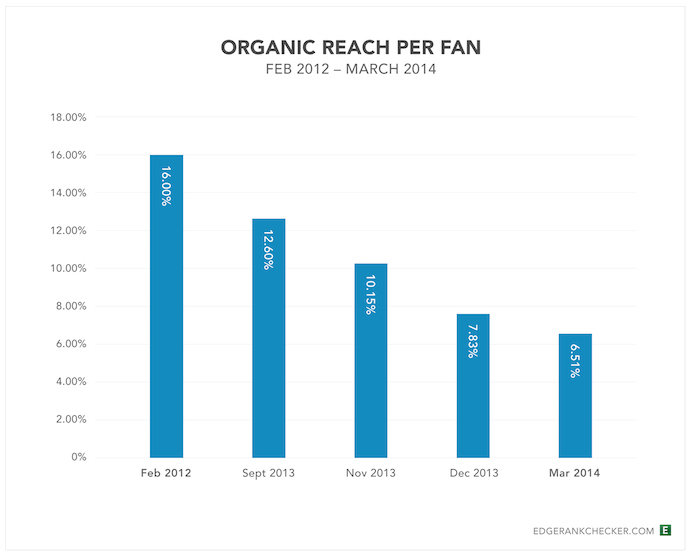
It’s probable, for instance, that Facebook will favor posts without links. As they say, Facebook wants to encourage users to have relevant conversations on the social network, which would implicitly mean that they don’t want people outside Facebook.
To convert your social media audience into leads or customers, your purchase process might require people to sign up on an external landing page.
Or not?
What if your conversions were more conversational?
What if you could track conversations and contacts on Social Media on autopilot?
Think of a CRM that is feed on social media data that can track your audience at an individual level.
That’s LeadKlozer.
In this article, we will review some use cases and ways to make your social media strategy more trackable and better at converting your audience to leads.
Track your social media audience at an individual level
When we check Social Media stats, we find metrics like comments, shares, impressions, engagements, reactions, and more.
They give us a general, quantitative overview of our social media efforts.
But those metrics come at an audience level.
They don’t provide the details of who’s interacting with us.
Tracking your audience at an individual level doesn’t just give you a glance at how many comments you post, but to know WHO’s engaging.
Social media metrics answer the what; with Lead Klozer, we’re untapping the who.
And even if they haven’t filled a form or visited your site, you could look up those who like and interact with you to identify them as potential hot leads.
Remember something: forms provide value to the marketer; they rarely provide value to the consumer.
Lead Klozer gives you such frictionless experience where you can track individuals’ behavior without them filling a form.
Interact with your audience on time
Lead Klozer has a live tracker panel where you can track all engagements and interactions as they happen, and can quickly respond to them.
This way, you can give timely replies to all users, no matter what posts they’re interacting with.
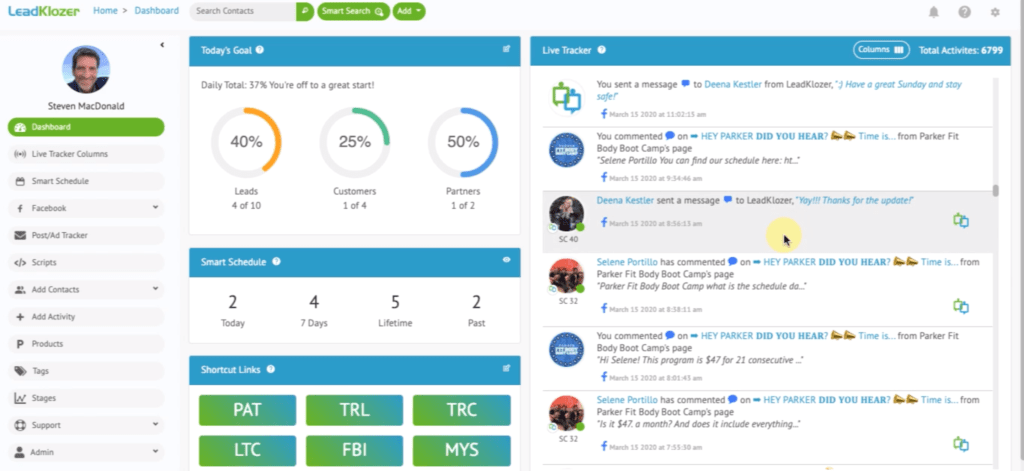
You can also choose toggle between a list of engagements to cards with different types of content and formats.
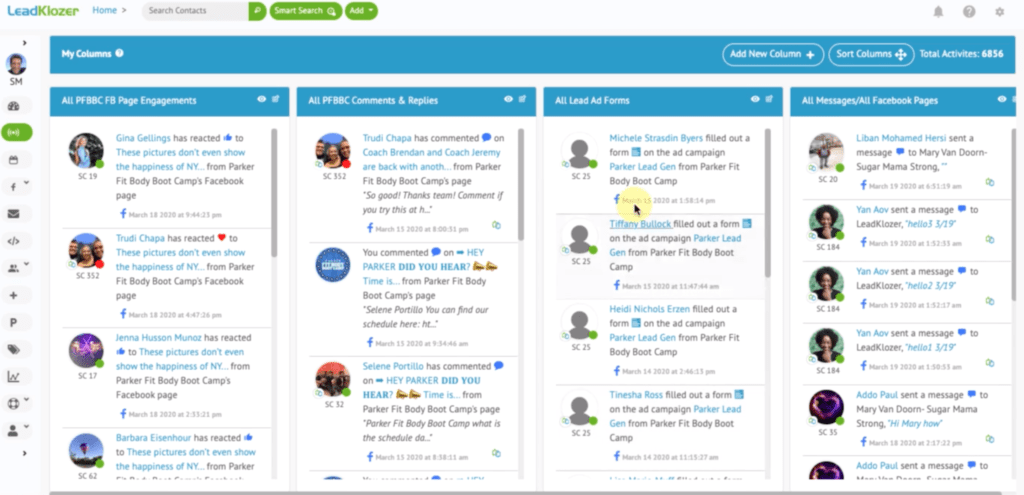
As you can see, you can break down the newest engagements by Messenger conversations, lead ads, posts engagements, and comments.
Map your customers’ journey on Social Media
This is a game-changer when it comes to social media analytics. It brings the qualitative aspect and an actual individual view of each of your contacts within an audience.
Lead Klozer lets you track each person who interacts with you on Social Media and shows you their engagements across all channels.
This way, you may make sense of how is the buying decision-making process of your audience when they’re on social media.
A key concept here is attribution. Attribution refers to how you determine specific marketing activities, like a post or ad, representing a conversion.
Common knowledge says that the attribution should be given to the last clicked ad that turned into a conversion.
With this kind of report, you can map the touchpoints your audience goes through before becoming customers.

Prioritize your leads. Organize your sales team
How do you prioritize and plan which contacts to reach out first?
A smart feature that Lead Klozer came up with is recommended leads.
Every day it will suggest you a list of suggested leads whose behavior on social media represent high chances of commercial intent.

Visualize multiple pages at once
If you work with a chain or franchise, chances are that you may track multiple Facebook pages.
Lead Klozer comes with an interesting feature: showing the most engaging posts for all your pages in a single view. This way, you can monitor all social media efforts at once without opening different tabs to visualize your data separately.
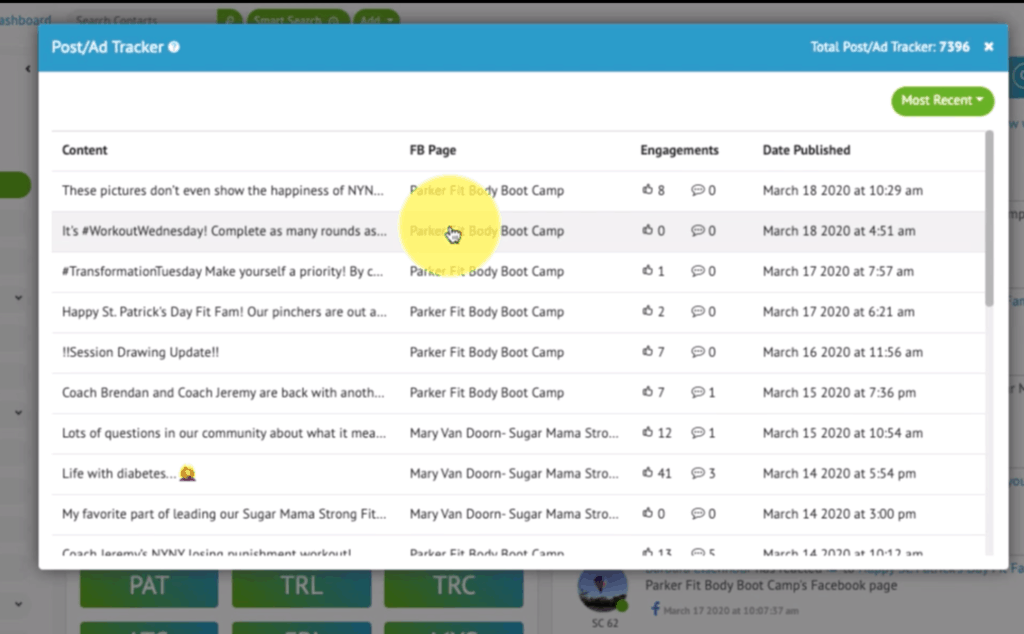
Know your audience better with smart filters
Here you can see how you can filter your social media contacts:

It’s impressive that you can tag users to create custom filters. Also ,Lead Klozer smartly picks your most qualified leads based on their behavior with your social media profiles, their current stage in the buying process or the channel they come from (e.g.g Messenger or FB Ads).
Want to try out Lead Klozer to never miss again a social media lead?
If you want to start analyzing your social media audience at an individual level—along with all the use cases we share with you, you may give Lead Klozer a try!

